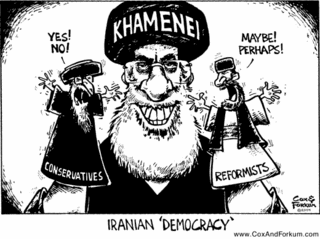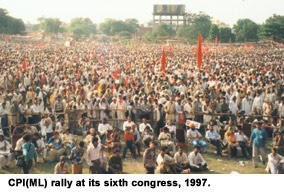
Article 127 can be used to:
- Dissolve parliament.
- Revolve parliament.
- Evolve parliament.
- Involve parliament.
- Resolve disputes.
- Light fires.
- Ignite hailstorms.
- Erupt volcanoes.
- Inititate earthquakes.
- Clean up Bagmati.
- Stop Bagmati in its tracks if it refuses the clean up.
- Cause a catastrophe upon Prachanda.
- Find out Prachanda actually is not a person but a doll the Maoists worship.
- Unearth secrets.
- Divulge secrets.
- Propagate secrets.
- Secretly propagate.
- For propaganda.
- Turn Girija into a permanent backbencher.
- Turn Baburam illiterate.
- Turn Ram Chandra Poudel silent.
- Invite the Dalai Lama to Lumbini.
- To create information.
- To disseminate information.
- To send out trojan horse viruses across the internet.
- To intervene in foreign countries.
- To redefine democracy and human rights for the new millenium.
- To refine oil. Mustard oil, custard oil, bastard oil, let's start oil.
- To install a salt factory.
- To stall a revolution.
- To forestall dialogue.
- To go comatose.
- To fend off criticisms.
- To inuagurate.
- To suffocate.
- To obliviate.
- To promulgate.
- To sustain.
- To disdain.
- To despair.
- To conspire.
- To prosper.
- To whisper.
- Conquer.
- Obliterate.
- Resolve Kashmir, Palestine, Ireland and Capitol Hill disputes on a permament basis.
- Say hello to Moriarty.
- Play golf with Moriarty and send Ram Sharan Mahat into fits: "Made my blood boil."
- To tour: China, Dubai, Dhaka, if possible, Macau, Hong Kong, Trinidad, Fiji, Honduras, Nicaragua, Costa Rica, Cuba, North Korea.
- Alleviate Fidel Castro's loneliness.
- Make Musharraf feel like he is the modern day Karl Marx, a man with influence beyond his land.
- To send Advani to Pakistan on a clean up exercise.
- Arrest, release, re-arrest, re-release, re-re-arrest, re-re-release Deuba until Deuba gets tired of it.
- Send 50 police officers after Deuba, 150 after Girija, 250 after MaKuNe and 350 after Peter Pan Giri. Send the leftovers after Prachanda, if there are any.
- Magically disappear 20 million rupees from Nepal Bank Limited and make it reappear in Bangalore.
- Hijack democracy, and give it back one ounce at a time, because it is not Dashain yet.
- To wake up Bishta and Giri from the near dead.
- To pronounce Badri Mandal as an almost cabinet member.
- To induct RK Mainali into the cabinet, and have CK Mainali green with envy.
- To militarily capture Gorkha from the Maoists.
- To discover the People's Army folks are seldom in uniform.
- To bring an end to RNA desertions.
- To send an arrest warrant after SD Muni.
- Turn Sharad Chandra Shah onto the soccer field so the people can take a good look at him.
- Revive street demonstrations.
- Tease the idea of parliamentary revival.
- Go abroad where even uncensored media don't talk no nonsense.
- Prune grass on the Narayanhiti lawns.
- Fly helicopters.
- Land in some Yadav's backyard, and claim it for a helipad.
- To nationalize all private property to pre-empt the Maoists.
- To get rid of FM radio stations forever, and instead introduce the use of loud speakers.
- To send spies to Delhi to find out what the Indian newspapers have been up to.
- To prevent Sikkimization, Tibetizatinon, fossilization, renaissance, and revolution.
- To stay put, dig heels and pass it on as resolve.
- To fundamentally misunderstand George W.'s "terrorism" rhetoric and blame it back on George W. because W. can't pronounce words right in the first place.
- To make the Dharahara stand up straight.
- To jump off the Dharahara with a handy umbrella, open it up only half way down. Like Mao swam down the Yellow River to recapture the imagination of the great proletarian Chinese people.
- To congratulate Kim Jong Seriously Ill on his gimmicks like he congratulated.
- To challenge Prachande to a nationally televised debate. Also to be webcast for the 700 protesting Nepalis in Washington DC who Gorkhapatra claimed had been hired for a sum total of $35,000. That is $50 a piece, Hem Bahadur style.
- To enhance tourism.
- To energize the economy.
- To ameliorate the situation.
- To do other good deeds on the shopping list.
- To challenge Girija to spell his name.
- So Pashupati Rana ain't nobody no more. And?
- For royal participation in street demonstrations as an outreach program.
- Celebrate monsoon in ways never done before.
- Take away all the holidays for one year, so people realize what they might be missing. It ain't just democracy.
- To mistake Moriarty as the ambassador from Greenland, and shame him into resuming military aid.
- Threaten to cut his water supply and blame it on the monsoon if the threat need be carried out.
- To build a east west Gyanendra Highway in the Himal region to rival its counterpart in the Terai.
- Make it four lane.
- Pretend all residents of Ramechhap are tourists.
- Hang up the phone every time Vajpayee calls. He is no longer Prime Minister.
- Say, Chandrashekhar who?
- Root for the Scindias so the Indians can have a taste of monarchy too.
- Offer to go back to Gorkha. The rest of Nepal can go to hell.
- Invite all exiled politicians to a party at the palace. Arrest them after getting them drunk.
- Declare the civil war over.


